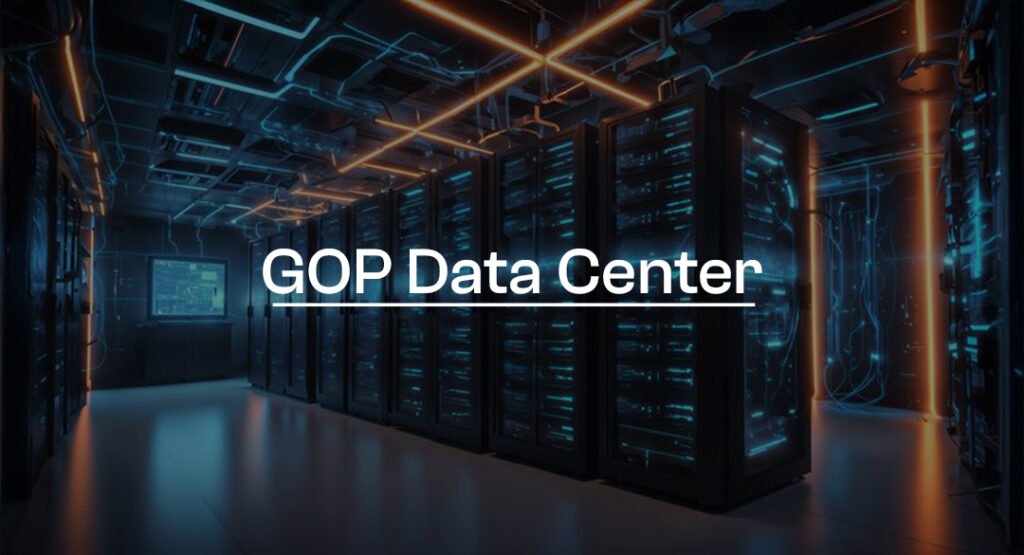The digital world is shifting at a rapid pace, and data is at the center of everything, from government operations and corporate decision-making to our daily interactions with technology. One of the key drivers behind this transformation is the GOP Data Center model, which is emerging as a backbone of secure, scalable, and efficient data management. As organizations demand smarter, more agile systems, the GOP data center is becoming a strategic necessity rather than a luxury.
In this article, we’ll delve into how GOP data centers are shaping digital infrastructure, their comparison with traditional data systems, and the reasons behind their growing presence in both public and private sectors. Whether you’re an IT decision-maker, a data enthusiast, or simply looking to stay up-to-date with tech innovation, this guide provides valuable insights into the future of data handling.
Why GOP Data Centers Are Gaining Global Attention
In the modern data ecosystem, flexibility and security are non-negotiable. The GOP data center provides both high-speed processing and extensive storage capacity, along with real-time access to critical information. The term “GOP” typically refers to “Government-Owned and Private,” meaning these data centers often result from a hybrid partnership between state organizations and private firms. This model helps ensure both regulatory compliance and performance optimization.
Key advantages of GOP data centers:
- Security at scale: Government standards paired with private innovation.
- Cost-effectiveness: Shared infrastructure reduces financial strain.
- Data sovereignty: Local data storage within national jurisdictions.
- Redundancy and uptime: Engineered for mission-critical continuity.
With the increasing need for secure and localized data centers, countries worldwide are investing heavily in GOP-based infrastructures. From public services to defense sectors, these centers are redefining the way organizations approach data strategy.
Tech Innovation and the Evolution of GOP Infrastructure
The GOP data center isn’t just about storage; it’s about smart deployment of resources. With AI, IoT, and blockchain becoming mainstream, GOP centers are integrating these technologies to power everything from predictive analytics to smart governance. High-performance computing clusters within these centers are handling vast datasets more efficiently than ever before.
At the heart of these innovations lies a need for:
- Edge computing support
- Sustainable power consumption
- Automated resource management
- Inter-agency data interoperability
Companies like Branewire are contributing to this landscape by offering tailored technical solutions that support the unique needs of GOP-based environments. Their work ensures that these centers not only meet today’s demands but are also future-ready.
Moreover, automation and machine learning are helping GOP data centers become self-optimizing, reducing human error and improving overall system performance. These centers are no longer static entities but dynamic hubs that continuously adapt to the digital landscape.
Data Governance and Compliance in the Age of Shared Infrastructure
As data regulations become stricter worldwide, GOP data centers offer a level of compliance that traditional private data centers often struggle to meet. Their ability to operate under dual governance models makes them uniquely suited for handling sensitive information from health records and financial data to defense logistics.
GOP data centers must adhere to:
- National cybersecurity laws
- Industry-specific regulations (HIPAA, GDPR, etc.)
- Disaster recovery protocols
- Transparent audit trails
The hybrid structure also facilitates seamless collaboration between various government agencies and private organizations, creating a transparent and accountable digital framework. This is especially crucial in regions where data localization laws are enforced to protect citizens’ data from international misuse.
Companies working within or alongside GOP data centers need to ensure strict adherence to these regulations. Branewire, for instance, helps bridge the technical and compliance gap with expert consultancy and robust infrastructure recommendations. Their solutions are designed to simplify complexity without compromising on security.
The Future Outlook: Scaling with Strategy
The digital future is not a distant dream; it’s an evolving reality that demands both agility and foresight. The GOP data center model is a prime example of how public-private collaborations can lead to technological resilience and innovation. With rising cyber threats and increasing data dependency, secure data management is no longer optional.
Looking ahead, we can expect GOP data centers to focus on:
- AI integration for real-time data analysis
- Green energy solutions to meet sustainability targets
- Cloud-native architectures for scalability
- Zero-trust frameworks for enhanced cybersecurity
Branewire continues to track and support these trends, ensuring that stakeholders can rely on accurate insights and dependable services. With a proven understanding of modern infrastructure needs, they are positioned as a valuable ally for organizations navigating the digital frontier.
Whether you are a startup looking for compliant data solutions or a government entity planning your next infrastructure upgrade, the GOP data center approach offers a blueprint for reliability and innovation.
Staying Aligned with a Data-Driven Tomorrow
As data continues to shape the future of governance, economics, and innovation, the importance of secure and efficient infrastructure cannot be overstated. The GOP data center model provides a strong foundation to support this transition, combining security, scalability, and sustainability under one roof.
With evolving tech landscapes and growing regulatory demands, making informed infrastructure decisions is vital. Reliable partners like Branewire help simplify these choices with guidance grounded in technical expertise and a forward-thinking mindset.
